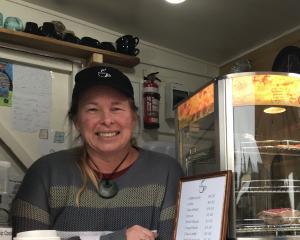
Speaking at Tuesday’s Queenstown Lakes District Council public forum before the council adopted a package of regional deals it would bring to the government for investment over the next 30 years, HAW steering group member Lucy Middendorf told councillors the Upper Clutha population was projected to grow at a faster pace than Queenstown.
She made a case for any new hospital included in a regional deal to be built at Dunstan, rather than in Queenstown as proposed by private developer Ross Copland.
"So, our question to the council is: Have all potential opportunities for the location of our regional hospital been explored, or does the proposed Otago Central Lakes Hospital in Queenstown reflect the ambitions of a private investor over and above the needs of the community?
"The location of our regional hospital should be decided as a result of strategic-level planning that puts the community’s needs at the centre of decision-making.
"This proposal locks our community into a regional hospital solution that is not the most equitable outcome for our people.
"We call on councillors to give serious consideration to what is being proposed here, and to ask themselves ‘can we do better than this?’," Mrs Middendorf said.
Mr Copland put forward a private hospital and gondola regional deal package to the Queenstown Lakes District Council in January, surprising HAW, the Central Otago District Council and other health infrastructure providers who supported a Central Otago-focused solution to the wider region’s health access problems.
Mrs Middendorf said the Queenstown Lakes region was seeing very high growth, and there was no doubt that it needed "many more publicly funded health services to meet growing demand".
"However, we also know that the Upper Clutha is projected to see higher growth than Queenstown.

"A regional hospital in Queenstown could mean that people living in the Upper Clutha would have to travel further — and through more difficult terrain and traffic conditions — to access services they can currently access at Dunstan Hospital.
"Our concern with the proposed Otago Central Lakes Hospital in Queenstown is that a private investor is dictating where the regional hospital for our people should be located.
"Furthermore, what happens if, down the track, this private investor ‘flips’ our regional hospital and sells it to international investors? Have our councillors considered the implications of this?" Mrs Middendorf said.
To get the best possible outcome, other models for delivery of health services should be considered, using a comparative process and meaningful community consultation that met the expectations of The Pae Ora (Healthy Futures) Act, she said.
Examples included using capital investment from ACC, ethical super funds or iwi, Mrs Middendorf said.
A majority of councillors went on to adopt six regional deal packages on Tuesday, including the hospital-gondola proposal.
Deputy mayor Quentin Smith, of Wānaka, and councillors Niki Gladding and Esther Whitehead, both of Queenstown, voted against it.
Contacted by the Wānaka Sun for comment on Wednesday, Cr Smith said the council had not yet seen a report on strategic health assets and services for the region, so questioned how it could promote Mr Copland’s proposal as a preferred option.
"I support the health action group’s point that a strategic approach is needed for healthcare," he said.
It was "quite likely" that if more strategic information had been available, the council could have decided on a different set of priorities for health, Cr Smith said.
It was important to have confidence in the background work that had been done for all six regional deal packages, including energy and transport, he said.
"I don’t question that the private sector can’t play a role in services in our district, but we have to ensure they are in the right place and get support."
He did not have a preferred option for a regional hospital.
"I remain open minded, but it does seem a more centrally located hospital would make more sense. That could mean more investment in Cromwell and investment by the private sector may play a part. But at the moment, we still can’t get a public X-ray service in Wānaka," he said.











